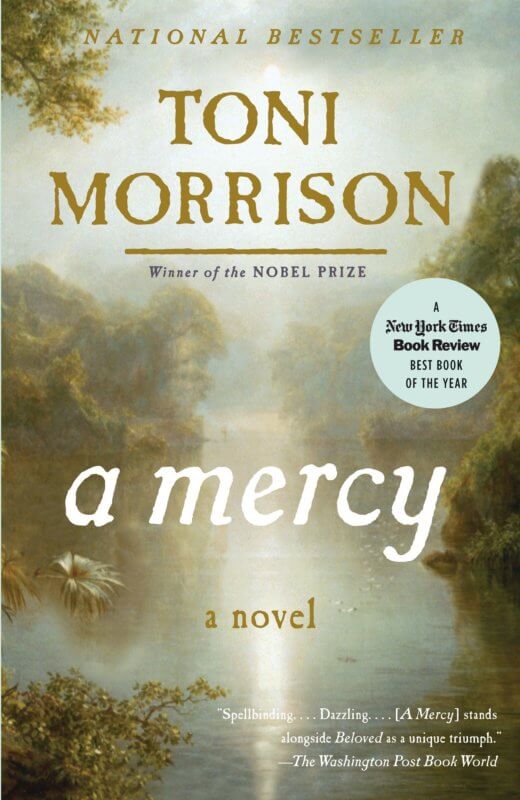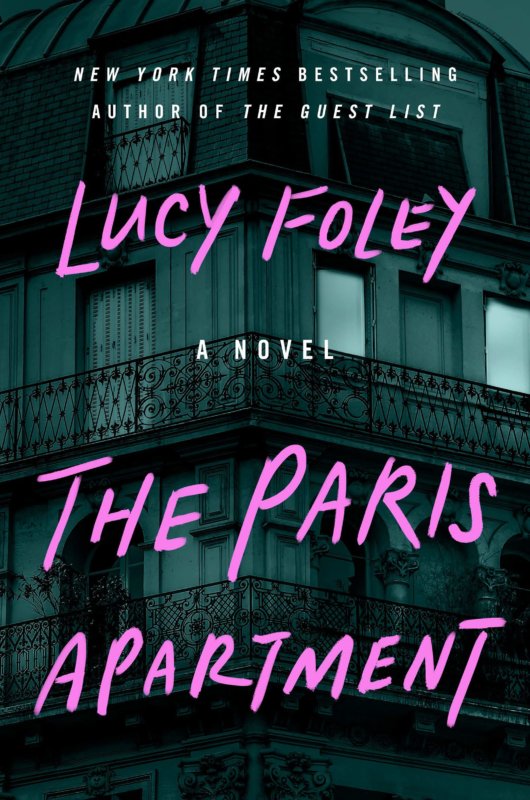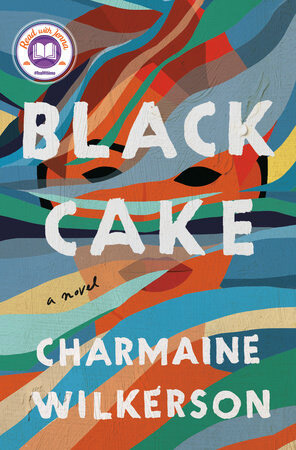Welcome May with a trio of gripping novels by women
I have read three good books lately that have almost nothing in common except that they are all written by women. Well, that, and they’re all good.
I am a big fan of Toni Morrison and noticed the other day, while browsing in a favorite out-of-town used bookstore (The Raven, Harvard Square), a novel that I did not recall ever having read. “A Mercy.” Fairly short relative to some of her other books, this one had me at hello.
As in other of Morrison’s later books, reality is sometimes suspended, hazy and/or distorted … and while this might prove annoying in other less well-rendered works, it only made this read more wonder-full, mysterious, deep and true. Shadowy and sometimes inscrutable, like real life, like night. I have always felt magic in Morrison’s work. When I finish her books, I invariably feel changed in a way that is hard to describe.
“Don’t be afraid,” the book begins. “My telling can’t hurt you in spite of what I have done and I promise to lie quietly in the dark — weeping perhaps or occasionally seeing the blood once more — but I will never again unfold my limbs to rise up and bare teeth.”
Huh? I wasn’t quite sure what was going on here initially. But in no way did my lack of understanding make me want to stop or give up. Au contraire. I dug in and journeyed on, bewitched.
 “A Mercy” begins in the first person. The year is 1690 and the narrator is on some kind of errand, it’s not exactly clear what. “My head is lost,” she says, “with the confusion of two things, hunger for you and scare if I am lost. Nothing frights me more than the errand and nothing is more temptation. From the day you disappear I dream and plot. To learn where you are and how to be there.”
“A Mercy” begins in the first person. The year is 1690 and the narrator is on some kind of errand, it’s not exactly clear what. “My head is lost,” she says, “with the confusion of two things, hunger for you and scare if I am lost. Nothing frights me more than the errand and nothing is more temptation. From the day you disappear I dream and plot. To learn where you are and how to be there.”
It all makes more sense later when we learn that Jacob Vaark, an Anglo-Dutch trader with a piece of land up North, takes a young slave girl as part of a payment on a debt owed to him by a Maryland plantation owner. Readers will put it together that the young slave girl is the one who opens the novel. Her name, it turns out, is Florens. When Jacob first meets her, she steps from behind her mother’s skirts wearing “way-too-big woman’s shoes,” her “little legs rising like two bramble sticks from the bashed and broken shoes.”
Jacob watches as the woman cradling the small boy on her hip comes forward. “Her voice was barely above a whisper but there was no mistaking its urgency. ‘Please, Senhor. Not me. Take her. Take my daughter.’” Jakob, writes Morrison, was struck by the terror in her eyes. He shook his head thinking, “God help me if this is not the most wretched business.”
It’s tragic, what happens to Florens (and others like her), but there is, as the title suggests, a mercy. To understand, one must read to the end.
At one point, Lina, a young servant woman whom Florens befriends, says, “We never shape the world. The world shapes us.”
I am still pondering this.
“A Mercy” is powerful, poetic, transformative. The language is gorgeous — elegiac, elegant, compelling, mysterious, evocative of other realms. I’m glad I happened upon it and took it home. Highly recommend.
The Paris Apartment
 Another recommendation: Lucy Foley’s “The Paris Apartment” — which I confess I did not actually read, but rather, listened to. I could not put it down — or perhaps I should say, could not turn it off. A mystery/thriller set in Paris, this novel is head and shoulders above many others of its genre.
Another recommendation: Lucy Foley’s “The Paris Apartment” — which I confess I did not actually read, but rather, listened to. I could not put it down — or perhaps I should say, could not turn it off. A mystery/thriller set in Paris, this novel is head and shoulders above many others of its genre.
I heard the other day that Foley wrote it while pregnant and later, caring for a newborn — which is odd, I thought when I heard this, as the book is rather dark and at times a tad grisly. But there are some intense mother-daughter relationships, so maybe the pregnancy/early motherhood thing had a subtle influence. Just a thought.
The heroine here is Jess who, pretty much broke and lost in life generally, travels from London, where she has just quit her job as a bartender, to visit her half-brother Ben in his Paris apartment. (Hence, the title.) He has left her a voicemail telling her he will be there when she arrives, nothing unusual — except the voicemail is cut off midstream. A little odd, but not the weirdest thing ever … but then, when Jess shows up, Ben is nowhere to be seen. And this Paris apartment? Well, it’s in a strikingly upscale building, which Jess soon discovers is filled with quite a bizarre, mismatched and increasingly suspicious assortment of residents.
The characters in this novel are well drawn and the writing is very good. The plot is compelling and fast-paced, the author takes time with descriptions of rooms and places, and the heroine is quite lovable, or so I found her to be. The setting: just the right amount of creepy. So, all in all, I would say this is a first-rate and very satisfying mystery. Whether you ingest it with eyes or ears, I think you will not be disappointed.
Black Cake
 I found “Black Cake” by Charmaine Wilkerson a little slow at first, but increasingly interesting and engaging as it went along. I wouldn’t call it a mystery, but it opens with what I would call a very mysterious situation: Eleanor Bennett has just died and left behind not only a traditional Caribbean black cake (composed of rum-saturated fruits, burnt sugar and a whole host of complex spices and ingredients) with firm instructions on who must (and when and how to) eat it, along with a voice recording in which she shares secrets about her life that leave her two adult children, Byron and Benny, reeling. I mean, they had no idea. No. Idea.
I found “Black Cake” by Charmaine Wilkerson a little slow at first, but increasingly interesting and engaging as it went along. I wouldn’t call it a mystery, but it opens with what I would call a very mysterious situation: Eleanor Bennett has just died and left behind not only a traditional Caribbean black cake (composed of rum-saturated fruits, burnt sugar and a whole host of complex spices and ingredients) with firm instructions on who must (and when and how to) eat it, along with a voice recording in which she shares secrets about her life that leave her two adult children, Byron and Benny, reeling. I mean, they had no idea. No. Idea.
This novel is a story about the past, but it’s also a story about two grownup children living in the present trying to make sense of who their mother was in her life, and who they are in theirs. I’m telling you: this posthumous recording really throws them for a loop. The reader is taken back and forth from their drama (relating to having to hear their mother’s true-life story) to the story of Eleanor herself, which is quite gripping and intense.
Woven into the narrative are some very interesting observations about race, and also about food and its sometimes complex, sometimes controversial origins, and what it means for a food to be “local” and indigenous.
In an author’s note, Wilkerson writes, “It was my personal familiarity with a particular Caribbean food, black cake, that led obliquely to this book. It started me thinking about the emotional weight carried by recipes and other familial markers that are handed down from one generation to the next. Then it had me writing about characters who must hold fast to their sense of self when they learn that their lives have been built on a dubious narrative.”
An interesting, quite unusual book. Like green eggs and ham, I say try it, I think you might like it.
Happy May!

